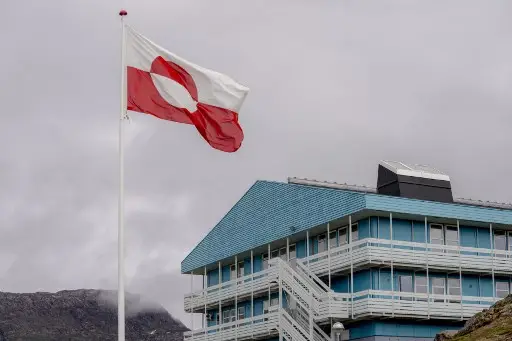The European Union (EU) has downplayed recent discussions about Greenland’s geopolitical future following speculative remarks by U.S. President Donald Trump, which have sparked waves of uncertainty in international circles. Trump’s controversial statements regarding potential American interest in Greenland were met with a measured response from the EU, prioritizing diplomacy and sovereignty.
In a Tuesday news conference, President Trump alluded to Greenland as a territory of strategic importance, hinting at economic and security interests that could shape his administration’s foreign policy. His comments, including veiled suggestions about tariffs on Denmark or military considerations, prompted widespread reaction across the Atlantic.
Addressing the media on Wednesday, an EU official reaffirmed the bloc’s commitment to supporting the sovereignty of its associated territories, such as Greenland, which operates as an autonomous region of Denmark. “We see no merit in engaging with baseless speculation,” the official stated. “Our priority remains clear—upholding international norms and ensuring stability.”
Greenland, with its vast reserves of natural resources and strategic Arctic location, has long been a subject of interest for global powers. However, EU representatives reiterated that discussions of territorial control or external influence are not on the table. “These hypothetical scenarios do not reflect the principles of diplomacy we adhere to,” another spokesperson noted, emphasizing that national sovereignty is not open to negotiation.
The European Union also highlighted Greenland’s unique position within the bloc, describing the region as vital to Arctic policy and international collaboration. The spokesperson added, “The EU values Greenland’s autonomy and contributions to the global community. Any speculation that undermines this is counterproductive.”
Observers have pointed out that Trump’s statements echo broader shifts in geopolitical strategy, with increased attention on the Arctic’s untapped potential. However, the EU’s restrained response suggests a focus on diplomacy over confrontation, signaling its intent to work with the incoming U.S. administration on broader shared challenges.
As discussions about Greenland’s future continue to ripple across international media, the EU’s stance remains firm: respect for sovereignty, adherence to international agreements, and a commitment to dialogue over rhetoric. For now, the Arctic island remains an autonomous territory of Denmark—secure in its position within the EU framework and insulated from speculative geopolitics.






